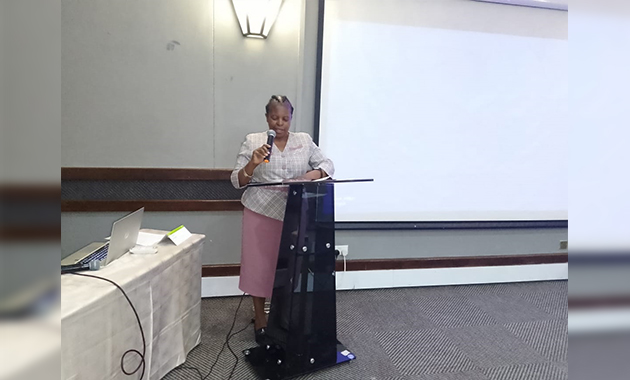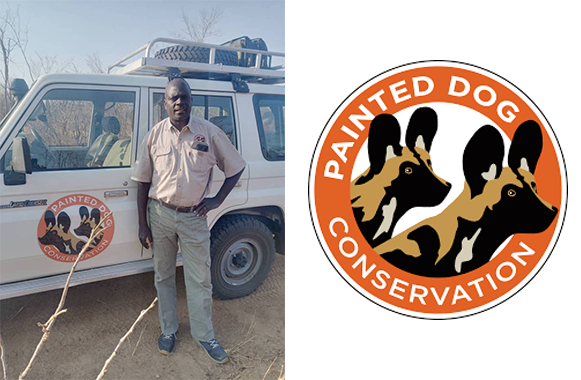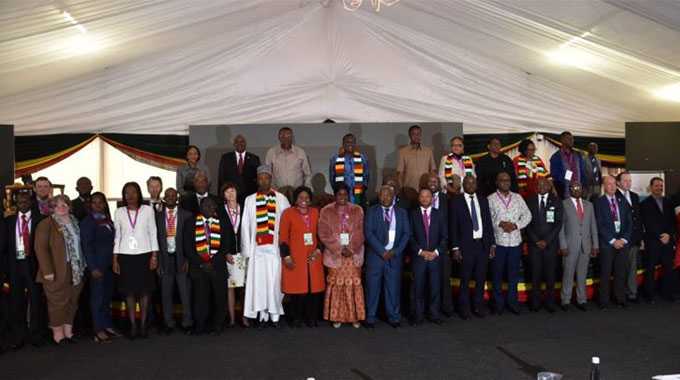Tired, frail and hungry

Looking evidently tired, frail and hungry, the refugees soldier on, hoping that they would finally reach their “paradise” in no time.
The story of Ethiopian and Somali refugees who come into the country through Nyamapanda Border Post has been told before.
Yet it always reads like a classic narrative, laden with sorrow and unparalleled determination. Police said the number of Somali and Ethiopian refugees arriving through Nyamapanda Border Post was increasing, with 3 871 arrivals last year alone.
As a result of tough economic and social conditions in their countries, the Ethiopian and Somali refugees travel several thousands of kilometres to escape the harsh environment in their countries of origin.
The refugees move in groups of 15 to 70 and traverse several countries before they eventually reach Zimbabwe through the Nyamapanda Border Post.
They travel using different modes of transport — boats, motor vehicles and scotchcarts.
But they also spend several days travelling on foot.
The tragedy of the whole drama is that some of the refugees never reach their intended destinations after succumbing to diseases and hunger.
Although there are 3 271km between Somali and Zimbabwe, this long distance means nothing to the refugees who are determined to escape from poverty to find new beginnings.
After arriving at Nyamapanda recently, the refugees looked visibly weary and hungry and could not help but scramble for some mangoes, which they were offered by some locals.
Shirru, a 20-year-old Somali, who was the only one who could speak some English amongst the group of 22 refugees, explained that his group had travelled the journey from East Africa.
But he made it clear that his colleagues were just civilians who were looking for a better kind of living than what is prevailing in their strife-torn homeland.
“It’s a tough journey, but we have to make it,” said Shirru.
“I have lost count of how many days and nights we took to get here, but we spent many weeks on the road.
“The first step was crossing from our country into Kenya. It usually takes five nights and six days as we cross into Kenya by boat.”
From Kenya, the refugees travel through Tanzania, Malawi and Mozambique, before eventually reaching Zimbabwe.
Shirru said the journey was very dangerous, as at times they travelled in the thick forests laden with numerous hazards.
“Along the journey, we travelled through thick forests and met wild animals,” he said.
“I recall at one time when we were in Mozambique, we travelled through the forest at night and we heard the sounds of lions roaring, but we were lucky not to meet them.”
But Shirru and his colleagues believe that the treacherous journey is worth everything.
“In Somalia, you can die anytime,” he said. “You can see bodies lying on the street and you can be shot at anytime.
“The situation was quite bad when I left. I lost several relatives who were killed for doing nothing. So, it is better to come here and look for a new life.”
Reports also show that the refugees meet different hazards along the road, including physical abuse.
In Kenya, Somali refugees are usually targets of harassment whenever there are cases of terrorists or bombings in the country, whilst in Malawi, they can be victimised for witchcraft.
In June, nine Somalis who were believed to be on their way to Zimbabwe, drowned off the north-eastern coast of Mozambique.
Shirru revealed that his group had decided to brave all those potential dangers because internal strife had escalated in his country.
He said he was relieved that he had finally reached Zimbabwe.
“When we left the country, the situation was getting worse,” he said. “I am pleased that I have arrived here.
“I have a cousin who arrived here in 2009 and he is now in South Africa. He told me that once you get into Zimbabwe everything will be well.
“Along the journey, we were harassed by some people and in Malawi and Mozambique some police officers asked for bribes from us.”
Hardly a day after the Somalis had arrived at Nyamapanda, a larger group of 30 Ethiopians arrived in the town and a member of the group said they had travelled for three months to reach Zimbabwe.
Nyamapanda residents said there has been a sharp increase in the arrival of the Somali and Ethiopian refugees, who enter the country almost everyday.
Police Commander for Murehwa District Chief Superintendent Simon Mwatsike-tsimbe confirmed that there has been an increase in the number of Somalis and Ethiopians who have arrived in the country in the last two months.
“The breakdown of the number of refugees we have received at the border for last year is 353 in January, 86 in February, 199 in March, 241 in April, 237 in May, 207 in June, 97 in July, 264 in August, 405 in September, 386 in October, 688 in November and 702 in December,” he said.
“As you can see, there has been a perpetual increase in the arrival of the refugees, especially the last two months — November and December.”
Chief Supt Mwatsiketsimbe said most of the refugees claim that they are fleeing strife in their countries.
He said the police had not encountered any problems with the refugees.
“When the refugees come, we vet them and record their details,” said Chief Supt Mwatsiketsimbe.
“However, I am happy to say that in 2010, we did not receive even one criminal report against any of these refugees.
“We also take a precautionary measure to guard against potential terrorists hiding themselves among the refugees. Most of them arrive without any form of identification.”
Chief Supt Mwatsiketsimbe said the Department of Social Welfare was mandated with assisting the refugees with transport.
“Social welfare assists them with transport and tells them where to go, but at times the refugees decide to walk to Harare,” he said.
When they get to Harare, the refugees report at the Harare Central Police Station and then proceed to a refugee holding camp in Waterfalls.
After that, they are then transported to different refugee camps like Tongogara refugee camp or to South Africa.
Residents of Nyamapanda said they have become used to the refugees and regularly interact with them.
“We have no problems with the refugees,” said Ronnie Musabayana, a resident in the area.
“Whenever they come, we interact with them and at times they ask for food. They say Zimbabweans are friendly compared to people in other countries they pass through.”
Ronnie said the refugees sometimes fight among themselves after disagreements.
“Ethiopians and Somalis do not mix,” he said. “They are like water and oil. Some time ago we experienced one incident in which they started fighting.
“It was quite ugly because they were shouting at each other in their own languages and we could not interfere.”
Somalia and Ethiopia, which are neighbouring countries, are erstwhile enemies owing to territorial disputes. Somalia is one of the most poverty-stricken countries in the world because of political instability. More than one million Somalis have fled the country in the past three years owing to civil war, which has resulted in the death of 21 000 people over the same period.
The civil war is led by Islamist fighters who seek to overthrow the country’s internationally recognised but weak Transitional Federal Government.
In fact, Somalia has been without a centrally recognised government since January 1991 when its leader, Mr Mohamed Siad Barre, was forced to flee by rebels.
He died in exile in Nigeria in 1995.
In Ethiopia, the political situation is better, but many parts of the country are poverty stricken and prone to political strife.
As a signatory to the Geneva Convention, Zimbabwe has an obligation to adhere to international laws which call for the assistance of refugees in terms of reception, screening and protection.












Comments